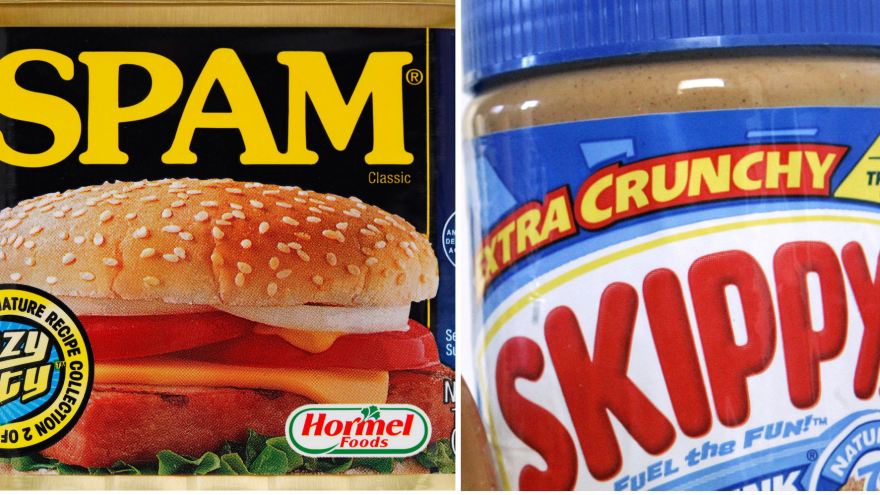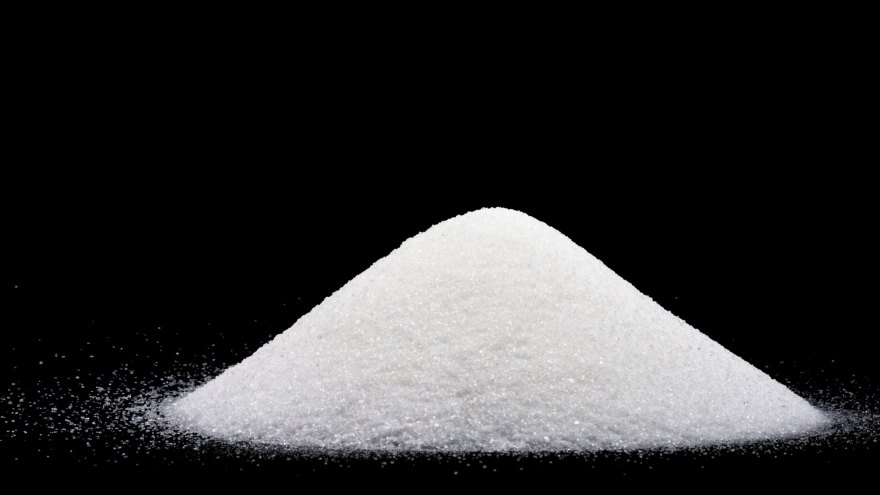Top
-
-
Sugar Fix
Big food companies should start to worry about tobacco-like lawsuits
-
China’s new leadership isn’t easing up on foreign journalists
-
Cliff at work?
Fiscal cliff blamed for Americans cutting back on holiday shopping online
-
Easy on the easing
The Fed is starting to get antsy about its ultra-easy monetary policy
-
guest work
How Chinese tourists are reinventing Swiss hospitality: Hold the cheese, butter and salt
-
Pandora's Box
When it comes to financial regulation, simplicity is a virtue; complexity is a reality
-
The bigger the data, the larger the deception
-
Inauguration Jan. 10
With Chávez in Cuba, who will be Venezuela’s president next week?
-
FTC clears Google: “Reasonable minds may differ…and reasonable search algorithms may differ”
-
organize the world's $$
How Google resolves antitrust cases without impeding its creeping monopoly
-
How American CEOs’ push for a fiscal deal paid off: It’s not about NASCAR or Hollywood
-
Iraqi Public Offering
First IPO on Iraqi stock market since invasion is a whopper: $1.3 billion for Asiacell
-
Pretty polymer
The ridiculousness of Canada’s “melting” money
-
Gesture-based interface company Leap Motion gets $30 million and a deal with ASUS
-
Why the US needs its own sovereign wealth fund
-
China’s new entrance exam policy looks like a weak beginning of hukou reform
-
Bad Books
Greece living up to most corrupt EU country rating
-
Communication breakdown
We are losing the war against email
-
How China fails to catch the cash illicitly walking out the country’s gates
-
Thanks for avoiding that global recession, America. Now what?
-
Reputational risk
The Arctic holds 25% of the world’s oil and gas, but its rough seas still stymie human efforts
-
What if you had to plan for a pay cut that grew bigger each year? Welcome to the “doctor cliff”
-
Rentals galore
Why the 49% premium Avis paid for Zipcar is a bargain

Can Hormel Foods get China hooked on peanut butter?
When companies say they are doing a deal to gain a bigger foothold in China, it deserves close scrutiny. Sometimes they really are buying a thriving Chinese business. Or they may be seeking to boost their share prices by associating themselves with China’s high economic growth.
Hormel Foods, the company best known for its Spam luncheon meat, said today its purchase of peanut butter brand Skippy from Unilever was partly about seizing opportunities in China. The deal was generally well received, with Hormel’s shares rising over 3% today, but the China angle seems like a stretch. The mainland Chinese do not eat much peanut butter, though the spread is eaten with toast in the more economically developed societies of Hong Kong and Taiwan.
While no official figures exist on peanut butter consumption in China, even Hormel admits it is low. Though Skippy is China’s market-leading peanut butter brand and is widely available in Chinese supermarkets, its sales are in the range of $30 million to $40 million a year, Hormel CEO Jeffrey Ettinger said on a conference call with analysts today.
This is hardly surprising, given that eating cold peanut butter sandwiches for breakfast or lunch is an alien concept to most Chinese. Hot and simple foods like rice porridge or deep-fried dough are customary at breakfast, which is why Western fast food chains have struggled to figure out how to fill Chinese mouths in the mornings. At lunchtime, meanwhile, most Chinese like to tuck into noodles or meat buns.
But while peanut butter may not fit into Chinese diets, greater China really likes its peanuts. Salted peanuts are the Chinese equivalent of bread baskets, and peanut oil is is a mainstay of Chinese cuisine. As the pictures on this Chinese recipe website show (in Chinese) the nation’s cooks crush peanuts into paste, which is stuffed inside cakes and buns or made into sweets. Both mainland Chinese and Taiwanese people often add peanut sauce to cold noodles.
So it’s not inconceivable that Hormel could launch Skippy-branded foodstuffs tailored to Chinese tastes. Ettinger told analysts on today’s call that the company was thinking of taking the Skippy brand “out of the jar” and into other food areas.
And while product awareness remains low, young mainland Chinese people seem to like peanut butter when they try it, at least based on the response to the news on Chinese social network Sina Weibo. Peanut butter on toast appeared to be the favorite—as one Weibo user commented in response to the deal, ”Crunchy peanut butter is really delicious. Smearing a generous dollop on a piece of toast has always been my guilty breakfast.”
Hormel also said somewhat unconvincingly that its luncheon meat product, Spam, may be the answer to selling more Skippy in China. CEO Ettinger alluded to potential ”marketing synergies” between Skippy and Spam during the analyst presentation, though he declined to elaborate further on the marketing virtues of a meat-nut team-up.
Still, any company that manages to sell the Chinese on Spam, which Westerners associate with poor quality and poverty (the Scottish use the slang phrase “Spam Valley” for low income housing estates), probably possesses a brand of marketing genius that should never be underestimated. Perhaps Hormel will have China hooked on peanut butter coated Spam fritters within months.

Big food companies should start to worry about tobacco-like lawsuits
The first people in America to say smoking was bad for your health were greeted with derision and called quacks. Even while studies emerged in the 1950s linking smoking to various ailments including lung cancer and heart disease, tobacco supporters (nearly half of Americans smoked back then) questioned whether anti-smoking campaigners detracted from more serious attempts to get at the real causes of these diseases. Robert Lustig, a pediatrician and author of a book out last week, Fat Chance, is sympathetic. He’s heard it all before.
He wants sugar (both the table variety and high-fructose corn syrup) regulated like alcohol. He wants products full of sugar to get health warnings, like on cigarette packs. Sugar, he says, is toxic in high doses, and should be treated as such. It’s also making us really fat.
Excess sugar turns into liver fat and that fat makes the liver more resistant to insulin, he explains. The pancreas, which makes insulin, then has to make more. This raises insulin levels in the blood stream, and forces energy into fat, which causes weight gain. Then there’s the effect on the brain. High insulin levels block actions on the hormone leptin, which tells the brain when the body has had enough to eat. People who eat lots of sugar are told by their brains that they are still hungry and so keep eating.
Lustig says that food companies know this and that’s why there’s more sugar than ever before in our processed foods. The more sugar foods contain, the more consumers will eat. Here is a (rather long) video of him explaining the science at greater length.
Lustig’s research started in 1995 while working as a pediatric endocrinologist at St. Jude Children’s Research Hospital in Tennessee. He noticed that children whose hypothalamuses were damaged, following neurosurgery to remove tumors, started producing too much insulin and became lethargic and fat. He prescribed a drug to block the insulin and the children ate less, became more active and lost weight. He says the weight loss was the result of the drug (i.e., a hormonal change), not the change in behavior. Since then Lustig has done four studies, two with children and two with adults, to verify the phenomenon. He has concluded that the obesity problem is not about our couch potato tendencies but about the amount of sugar Americans consume, which he says is double what it was two decades ago.
Lustig has plenty of critics (he claims that many of them work for the food industry). Some question a lack of original research, the theories themselves, and his penchant for grandstanding. He says they’re vilifying the messenger, and he’s just a doctor who is using science to try to stop kids from getting fat and fix America’s health care system. “It’s very clear to me that we have to do something because by 2024 Medicare will be broke. 75% of our health expenditures are for chronic diseases,” he says. “By others’ estimates, 75% of those could be preventable. We could recoup up to $192 billion in health care costs. It’s often said that we wouldn’t need health care reform if we had obesity reform. And so we need to do something.”
Send in the lawyers
Lawyers are only too happy to oblige. Many would love to find a smoking gun (as with tobacco companies)—an internal memo from a food company, say, verifying that sugar is addictive and bad for your health. In the meantime, they’ll settle for what they can get.
Don Barrett, a Mississippi lawyer, made his name—and his fortune—in tobacco litigation. Now he and a group of lawyers hope for a Big-Tobacco-like victory over Big Food. His approach isn’t to focus on the health risks, though, as some suits have done—think of the rejected no-fruit-in-Froot-Loops claims. Instead, Barrett and a group of lawyers have filed 25 class-action suits against companies such as ConAgra Foods, PepsiCo, Heinz, and General Mills that take aim at something very specific: mislabeled products that violate FDA regulations saying companies must disclose what’s in their products. “It’s not our job to tell the American people what they ought to eat, or that they can’t eat this or they must eat that,” says Barrett. “What we want to do is see that the American people get accurate information.”
This fight, he says, is far easier than trying to prove things aren’t healthy. He doesn’t need to line up an exhaustive list of health experts (though Lustig is one of his experts) to prove the products caused harm. He says that companies will settle these cases for “chump change”, and write them off as the cost of doing business. Mislabeling cases are potentially far more lucrative, he says.
One such class-action suit filed last spring is against Chobani Yogurt, which Barrett accuses of calling sugar “evaporated cane juice” to confuse consumers. “It’s just a made-up name for sugar, and it’s deceptive,” he says. “It’s even kind of funny, though not to the mother of a child with juvenile diabetes.” The case is still in the early stages, and a spokeswoman for Chobani has called the lawsuit ”frivolous” and “without merit”.
Barrett says he and others plan to file many more cases like this one. “If a food product is misbranded, it is unlawful to sell and therefore has no value.” He says the company owes consumers their money back, and that these cases could return hundreds of millions of dollars.
Some call Barrett an opportunist seeking his next windfall, and it might seem a big leap from his narrow focus on product labels to a broader case about the harmful effects of sugar. But if Lustig is right about those effects, these lawsuits could make a difference. Surprising things turn up during discovery periods, some of which could prove more damaging (and lawsuit-worthy) than inaccurate labels.
Lustig calls these legal efforts “valuable and useful,” but adds that “ultimately it doesn’t really change what’s in the diet and it’s not going to fix obesity.” In the meantime, he’s getting a masters degree from Hastings College of the Law, at the University of California. He says he wants to learn “what brings a personal responsibility issue (like smoking) to a public health crisis, what it takes to get government involved, and what legal avenues are available for being able to get the food industry to ‘do the right thing’.”

China’s new leadership isn’t easing up on foreign journalists
On freedom of expression, China is going backwards. The New Yorker blogged today that China is exerting a “pattern of pressure” on American media organisations that “the US government cannot ignore.” In recent months, and in response to “a level of forensic detail that we have rarely, if ever, seen in foreign correspondence,” China has blocked access to Bloomberg and the New York Times and refused the Washington Post’s correspondent a visa.
This is part of a more general clampdown on both domestic and foreign reporting by Beijing. In the self-governed Chinese territory of Hong Kong, journalists are complaining of heightened harassment by Chinese police when they try covering stories on the mainland. And while Hong Kong media are not directly controlled by Beijing’s censors, self-censorship is rising as media owners fear losing valuable patronage from mainland Chinese politicians and connections with state-owned companies. Hong Kong’s leading English-language newspaper, the South China Morning Post, was accused of muzzling itself last year. Last June Paul Mooney, a journalist who has won several awards, complained the paper had canceled his contract in a “political decision.”
In addition, Al Jazeera correspondent Melissa Chan was expelled from China last May after filing a series of reports that riled the Beijing authorities. There were also reports last year of Polish, German and Japanese reporters being assaulted or detained by Chinese authorities.
In 2012, journalists suspected this intimidation had to do with the impending leadership change. Social controls that included heightened web censorship and even a ban on balloons increased strongly during the power handover in November. But policing of the Chinese web has not slackened since the political reshuffle.
And while the international media loves to report on itself, it is worth also sparing a thought for China’s domestic bloggers, especially those who expose official corruption or human rights abuses and rely on anonymity for safety. The Beijing city government has proposed new rules making it illegal for bloggers to write under assumed names. That is worrying because where the capital city goes, other Chinese cities tend to follow.
While Washington needs to press Beijing on guaranteeing freedom for America’s journalists, it should also stick up for the rights of Chinese reporters and bloggers. It’s an open secret that most foreign news bureaux in China get much of their content from Chinese language micro-blogs on services such as Sina Weibo, as parodied on the satirical website China Daily Show. Businesses the world over will have an even harder time navigating the tricky Chinese markets if they have no idea what is going on in the country because the Chinese internet, that rich seam of information for international media, is blacked out.